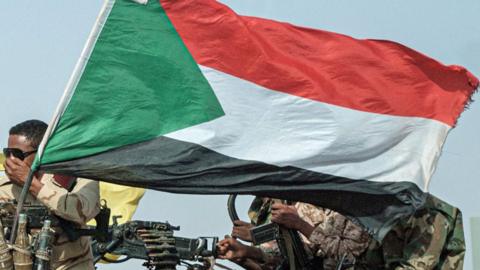In May, Amira embarked on a dangerous journey through Sudan's active war zones, where the paramilitary Rapid Support Forces (RSF) seized her city of En Nahud. As a seven-month pregnant woman, she faced dire circumstances: There were no hospitals anymore, no pharmacies, and I was afraid if I stayed longer, I wouldn't find any vehicles heading out. Travel had become incredibly difficult and expensive. Amira's flight through Kordofan, now the main battleground in a conflict that brutalized civilians for over two years, compelled her to record an audio diary as she fled.
Her harrowing experience began upon boarding a truck, where a confrontation erupted between the RSF driver and the vehicle's owner over additional passengers. The driver, armed and aggressive, threatened violence in a moment of chaos filled with fear and desperation. Fortunately, she and her husband escaped that situation but faced numerous ongoing challenges.
The overloaded truck journey was fraught with obstacles: unpaved, treacherous roads and frequent RSF checkpoints demanding payments. Chronic anxiety haunted Amira, who prayed daily that her baby wouldn't arrive during such perilous times. After several incidents, including a breakdown in a remote area where access to food and water was nearly impossible, they finally reached South Sudan's capital, Juba.
Now in Uganda, Amira awaits the delivery of her child with mixed feelings, voicing her concerns for loved ones left behind and the uncertainty of returning to a much-changed Sudan: I hope that Sudan's situation will improve, but if the war stops, there will at least be some kind of security. People won’t just die randomly, like they are now. The emotional strain illustrates the profound impact of conflict not just on individuals, but within families and communities enduring relentless turmoil.
Her harrowing experience began upon boarding a truck, where a confrontation erupted between the RSF driver and the vehicle's owner over additional passengers. The driver, armed and aggressive, threatened violence in a moment of chaos filled with fear and desperation. Fortunately, she and her husband escaped that situation but faced numerous ongoing challenges.
The overloaded truck journey was fraught with obstacles: unpaved, treacherous roads and frequent RSF checkpoints demanding payments. Chronic anxiety haunted Amira, who prayed daily that her baby wouldn't arrive during such perilous times. After several incidents, including a breakdown in a remote area where access to food and water was nearly impossible, they finally reached South Sudan's capital, Juba.
Now in Uganda, Amira awaits the delivery of her child with mixed feelings, voicing her concerns for loved ones left behind and the uncertainty of returning to a much-changed Sudan: I hope that Sudan's situation will improve, but if the war stops, there will at least be some kind of security. People won’t just die randomly, like they are now. The emotional strain illustrates the profound impact of conflict not just on individuals, but within families and communities enduring relentless turmoil.


















